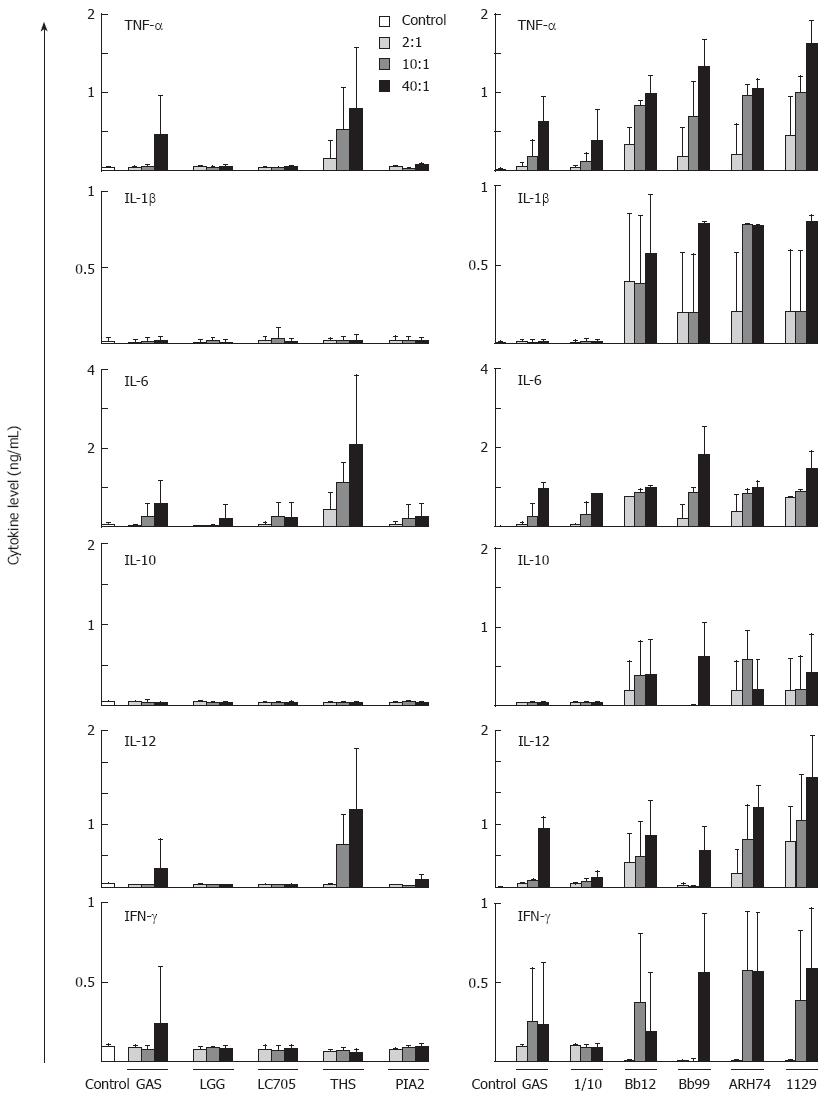Copyright
©2008 The WJG Press and Baishideng.
World J Gastroenterol. Sep 28, 2008; 14(36): 5570-5583
Published online Sep 28, 2008. doi: 10.3748/wjg.14.5570
Published online Sep 28, 2008. doi: 10.3748/wjg.14.5570
Figure 1 Probiotic bacteria induce cytokine production in human moDCs in a dose-dependent manner.
MoDCs were stimulated with bacteria:host cell ratio of 2:1, 10:1, or 40:1. At 24 h after stimulation cell culture supernatants were collected and cytokine levels were determined by ELISA. The experiment was carried out with cells obtained from four different blood donors, and the columns represent means and error bars indicate the standard deviations. The data is from a representative experiment out of two. GAS: S. pyogenes; LGG: L. rhamnosus GG; LC705: L. rhamnosus LC705; THS: S. thermophilus THS; PIA2: L. mesenteroides subsp. cremoris PIA2; 1/10: B. longum 1/10; Bb12: B. animalis subsp. lactis Bb12; Bb99: B. breve Bb99; ARH74: L. lactis subsp. cremoris ARH74; 1129: L. helveticus 1129.
- Citation: Latvala S, Pietilä TE, Veckman V, Kekkonen RA, Tynkkynen S, Korpela R, Julkunen I. Potentially probiotic bacteria induce efficient maturation but differential cytokine production in human monocyte-derived dendritic cells. World J Gastroenterol 2008; 14(36): 5570-5583
- URL: https://www.wjgnet.com/1007-9327/full/v14/i36/5570.htm
- DOI: https://dx.doi.org/10.3748/wjg.14.5570









